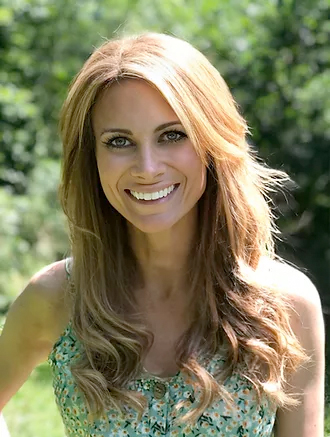Starting school can be a nervous time for children and their families. Local early years specialist Hayley Fuller offers these words of wisdom to allay some of the most common fears.
With the end of an academic year rapidly approaching, you may find yourself asking if your child is actually ready for “big” school? Your child may be moving on from a nursery, childcare or your home setting where everything has been a regular routine, having had consistent and familiar educators or family members supporting them.
You could be worrying about your summer born child starting school at the tender age of four and questioning yourself, are they emotionally or physically ready yet? Or maybe you have a child who still needs support with their speech and language ability? With over 20 years Early Years expertise, I am here to answer any questions or concerns you may have along with some ideas to support you and your pre-schooler.

“My child doesn’t show any interest in writing or drawing”
Do you have a child who would rather be outside kicking a ball or climbing a tree than sitting down to draw or write? Well good news, because these physical activities that your child shows more of an interest in now are actually helping them to be able to draw and write in the future (when they are ready!)
Helping your child develop strong core muscles and gross motor skills is the BEST thing you can do to help your child sustain the strength to hold a pencil later on. The gross motor muscles in turn, then support the fine motor muscles in the wrists and fingers for example, to become stronger and more sustainable.
So keep taking your child to the park, keep letting them climb the climbing frame and allow them to choose the outdoors! When their muscles and minds are ready, they will be interested and happy to write and draw.
“I am worried my child will find it hard to detach from me”
If your child has had trouble in the past settling into a different setting or being left with “new” people you may worry that your child will struggle to detach from yourself when they get to “big” school.
Keep all talk about starting school very positive, have active conversations with your child about how much fun they are going to have and how many wonderful new experiences they are going to take part in. If you are positive and demonstrate that you are not worried for them, your child will pick up on these mannerisms and will hopefully have more positive ‘self talk’ when they think about starting school.
Allow your child to bring in a ‘transition object’ such as a small soft toy, for the first few days as this could comfort them and bring some of ‘home’ into the new setting. If you can, arrange some playdates with some new class mates before they start school so your child can see a familiar face or two when they get there.
“My child is very shy, I am worried they might find it difficult to settle”
The most important thing to know though, is that it is completely normal if your child does need some extra support to settle. Never feel embarrassed by your child showing their attachment to you. Your child’s teacher will be well versed to this and will know a range of strategies to support them. Always say “goodbye” to your child (even if you think they will be upset to see you go) and never just “disappear” without your child knowing or lie and say you will be “back in a few minutes”.
Although this seems like a good idea, this ultimately prolongs your child’s attachment as they will be thinking about you returning soon. When you say “goodbye, see you after school” give a big hug to them and then go, you set a strong, clear message to your child that you are leaving now, you will be back and it is time for them to go into school. In the long run, this will help your child to settle more quickly.
“My child is very shy, I am worried they might find it difficult to settle”
The most important thing to know though, is that it is completely normal if your child does need some extra support to settle. Never feel embarrassed by your child showing their attachment to you. Your child’s teacher will be well versed to this and will know a range of strategies to support them. Always say “goodbye” to your child (even if you think they will be upset to see you go) and never just “disappear” without your child knowing or lie and say you will be “back in a few minutes”.
Although this seems like a good idea, this ultimately prolongs your child’s attachment as they will be thinking about you returning soon. When you say “goodbye, see you after school” give a big hug to them and then go, you set a strong, clear message to your child that you are leaving now, you will be back and it is time for them to go into school. In the long run, this will help your child to settle more quickly.

“My child still struggles to dress and undress independently”
Independence is an important part of starting school. Naturally, you would have supported your child heavily with this. Please do not worry if you child still struggles with buttons and zips, it is very normal developmentally for your three or four-year-old to need some support.
When you can encourage them to put their coats, shoes and socks on independently, then each morning throughout the summer or first half term at school, encourage them to attempt to put their uniform on and off on their own as much as possible. Once your child is at school and can see other children being independent with their dress they will naturally want to copy and will be more self-motivated to do this independently.
“My child is a fussy eater, I am worried they will not eat their school lunch/lunch box”
If your child is having school dinners, make sure you go through the menu with them together. This will help them feel more prepared for what will be on their plate. It is amazing how a fussy eater suddenly starts trying new foods because their friends are eating the same thing next to them. Try introducing one new food from the school menu, alongside their usual ‘safe’ foods when you are at home every day.
Even if they refuse for the first few days, you usually find after about eight attempts at looking and smelling the new food they will then move on to trying. If you are providing a packed lunch for your child, try this method also in their lunch box. You may be surprised! Think about cutting a little opening on difficult packets so your child can open it themselves more easily, and have a test run of them opening and closing any food boxes and drink bottles before they start.
Make sure to bring a snack when you pick up your child after school, they always leave hungry no matter how well they have eaten during the day. Busy minds require lots of food after all!
“My child still needs help to use the toilet and wipe themselves”
Toileting is again, a big part of starting school and your child’s teacher should be able to still support and help with this when needed. Keep practising as home and encouraging them to try and wipe by themselves.
Please do not worry if your child has a few accidents in the first term, when they haven’t had any for a while. I tend to find that some children get so “busy” with their activities they simply leave it too late to go. They will get used to this as time progresses and it is very normal for this to happen initially.
Make sure you pack plenty of spare underwear, socks, and bottom layers for you child in their school bag to help with this. Most Reception teachers will encourage the children to use the toilet very often throughout the day, especially in the first term.
“My child doesn't know anyone else at the school, I am worried they will feel left out”
Children are beautifully adaptable at this age, and they will make new friends extremely quickly as most children are naturally curious and talkative at this age. Even if you child ends to be quite shy, I have always found, in the first few weeks, they will gravitate towards “like minded” children naturally.
Social development is one of the biggest and most important parts of Reception so it is natural for your children to still be learning how to socialise and make friendships at this age and stage of development.
HAYLEY FULLER
For more support, information or questions please do feel free to get in touch!
Hayley Fuller, EYFS specialist hayleyfuller.co.uk











